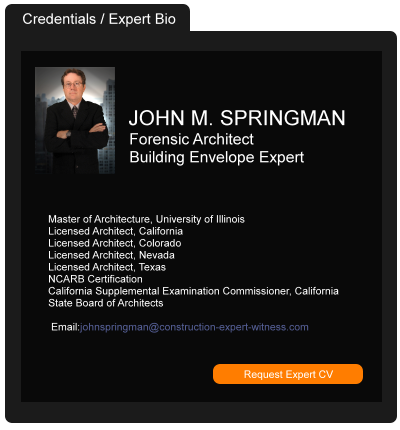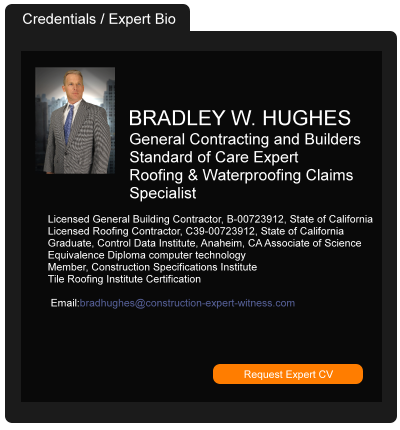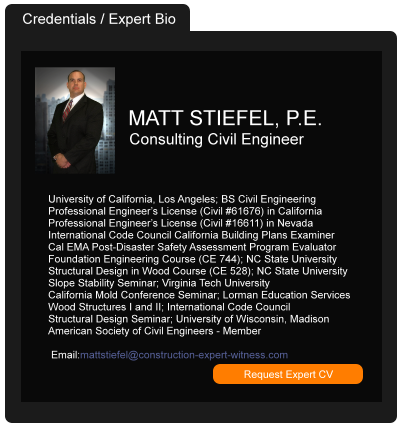Washington Builders Right To Repair Current Law Summary:
Current Law Summary: (SB 5536) The legislature passed a contractor protection bill that reduces contractors' exposure to lawsuits to six years from 12, and gives builders seven "affirmative defenses" to counter defect complaints from homeowners. Claimant must provide notice no later than 45 days before filing action; within 21 days of notice of claim, "construction professional" must serve response; claimant must accept or reject inspection proposal or settlement offer within 30 days; within 14 days following inspection, construction pro must serve written offer to remedy/compromise/settle; claimant can reject all offers; statutes of limitations are tolled until 60 days after period of time during which filing of action is barred under section 3 of the act. This law applies to single-family dwellings and condos.
Building Expert Contractors Licensing
Guidelines Seattle Washington
A license is required for plumbing, and electrical trades. Businesses must register with the Secretary of State.
Association Directory
Local # 4955
335 116th Ave SE
Bellevue, WA 98004
http://www.masterbuildersinfo.com
Seattle Washington Building Expert 10/ 10
Home Builders Association of Kitsap County
Local # 4944
5251 Auto Ctr Way
Bremerton, WA 98312
http://www.kitsaphba.com
Seattle Washington Building Expert 10/ 10
Home Builders Association of Spokane
Local # 4966
5813 E 4th Ave Ste 201
Spokane, WA 99212
http://www.shba.com
Seattle Washington Building Expert 10/ 10
Home Builders Association of North Central
Local # 4957
PO Box 2065
Wenatchee, WA 98801
http://www.nchba.cc
Seattle Washington Building Expert 10/ 10
MBuilders Association of Pierce County
Local # 4977
PO Box 1913 Suite 301
Tacoma, WA 98401
http://www.mbapierce.com
Seattle Washington Building Expert 10/ 10
North Peninsula Builders Association
Local # 4927
PO Box 748
Port Angeles, WA 98362
Seattle Washington Building Expert 10/ 10
Jefferson County Home Builders Association
Local # 4947
PO Box 1399
Port Hadlock, WA 98339
http://www.jeffcohomebuilders.com
Seattle Washington Building Expert 10/ 10
Building Expert News and Information
For Seattle Washington
Insureds Survive Motion to Dismiss Civil Authority Claim
Homebuilding Held Back by Lack of Skilled Workers
New Nafta Could Settle Canada-U.S. Lumber War, Resolute CEO Says
Utah’s Highest Court Holds That Plaintiffs Must Properly Commence an Action to Rely on the Relation-Back Doctrine to Overcome the Statute of Repose
Despite Construction Gains, Cement Maker Sees Loss
Randy Maniloff Recognized by U.S. News – Best Lawyers® as a "Lawyer of the Year"
Real Estate Developer Convicted in $1.3 Billion Tax Case After Juror Removed
One Way Arbitration Provisions are Enforceable in Virginia
"Your Work" Exclusion Bars Coverage for Contractor's Faulty Workmanship
Arizona Court of Appeals Decision in $8.475 Million Construction Defect Class Action Suit
California Supreme Court Declines Request to Expand Exceptions to Privette Doctrine for Known Hazards
Quick Note: Third-Party Can Bring Common Law Bad Faith Claim
Partner John Toohey and Senior Associate Sammy Daboussi Obtain a Complete Defense Verdict for Their Contractor Client!
Supreme Court Addresses Newly Amended Statute of Repose for Construction Claims
Contract Disruptions: Navigating Supply Constraints and Labor Shortages
The Court-Side Seat: FERC Reviews, Panda Power Plaints and Sovereign Immunity
Flood Policy Does Not Cover Debris Removal from Property
Approaches in the Absence of a Differing Site Conditions Clause
Rights Afforded to Employees and Employers During Strikes
Congratulations to Walnut Creek Partner Bryan Stofferahn and Associate Jeffrey Schilling for Winning a Motion for Summary Judgment on Behalf of Their Client, a Regional Grocery Store!
Appraisal Goes Forward Even Though Insurer Has Yet to Determine Coverage on Additional Claims
Competitive Bidding Statute: When it Applies and When it Does Not
Expansion of Statutes of Limitations and Repose in K-12 and Municipal Construction Contracts
Saving Manhattan: Agencies, Consultants, Contractors Join Fight to Keep New York City Above Water
Colorado Trench Collapse Kills Two
Bad Welds Doom Art Installation at Central Park
Renee Mortimer Recognized as "Defense Lawyer of the Year" by DTCI
Back to Basics: What is a Changes Clause?
Tighter Requirements and a New Penalty for Owners of Vacant or Abandoned Storefronts in San Francisco
New York Team’s Win Limits Scope of Property Owners’ Duties to Workers for Hazards Inherent in Their Work
Coverage for Construction Defects Barred by Business Risk Exclusions
It Was a Wild Week for Just About Everyone. Ok, Make that Everyone.
Making Construction Innovation Stick
Constructing a New American Dream
Another Reason to Love Construction Mediation (Read: Why Mediation Works)
Rhode Island Examines a Property Owner’s Intended Beneficiary Status and the Economic Loss Doctrine in the Context of a Construction Contract
Here's Proof Homebuilders are Betting on a Pickup in the Housing Market
Coffee Beans, Mars and the 50 States: Civil Code 1542 Waivers and Latent Defects
Lien Actions Versus Lien Foreclosure Actions
Workers Compensation Immunity and the Intentional Tort Exception
You’re Only as Good as Those with Whom You Contract
Alexus Williams Receives Missouri Lawyers Media 2021 Women’s Justice Pro Bono Award
Brown and Caldwell Team with AECOM for Landmark Pure Water Southern California Program
Speculative Luxury Homebuilding on the Rise
Limiting Plaintiffs’ Claims to a Cause of Action for Violation of SB-800
Preventing Acts of God: Construction Accidents Caused by Outside Factors
Policy's One Year Suit Limitation Does Not Apply to Challenging the Insurer's Claims Handling
Withholding Payment or Having Your Payment Withheld Due to Disputes on Other Projects: Know Your Rights to Offset
Domingo Tan Receives Prestigious Ollie Award: Excellence in Construction Defect Community
Excess Carrier's Declaratory Judgment Action Stayed While Underlying Case Still Pending


































































